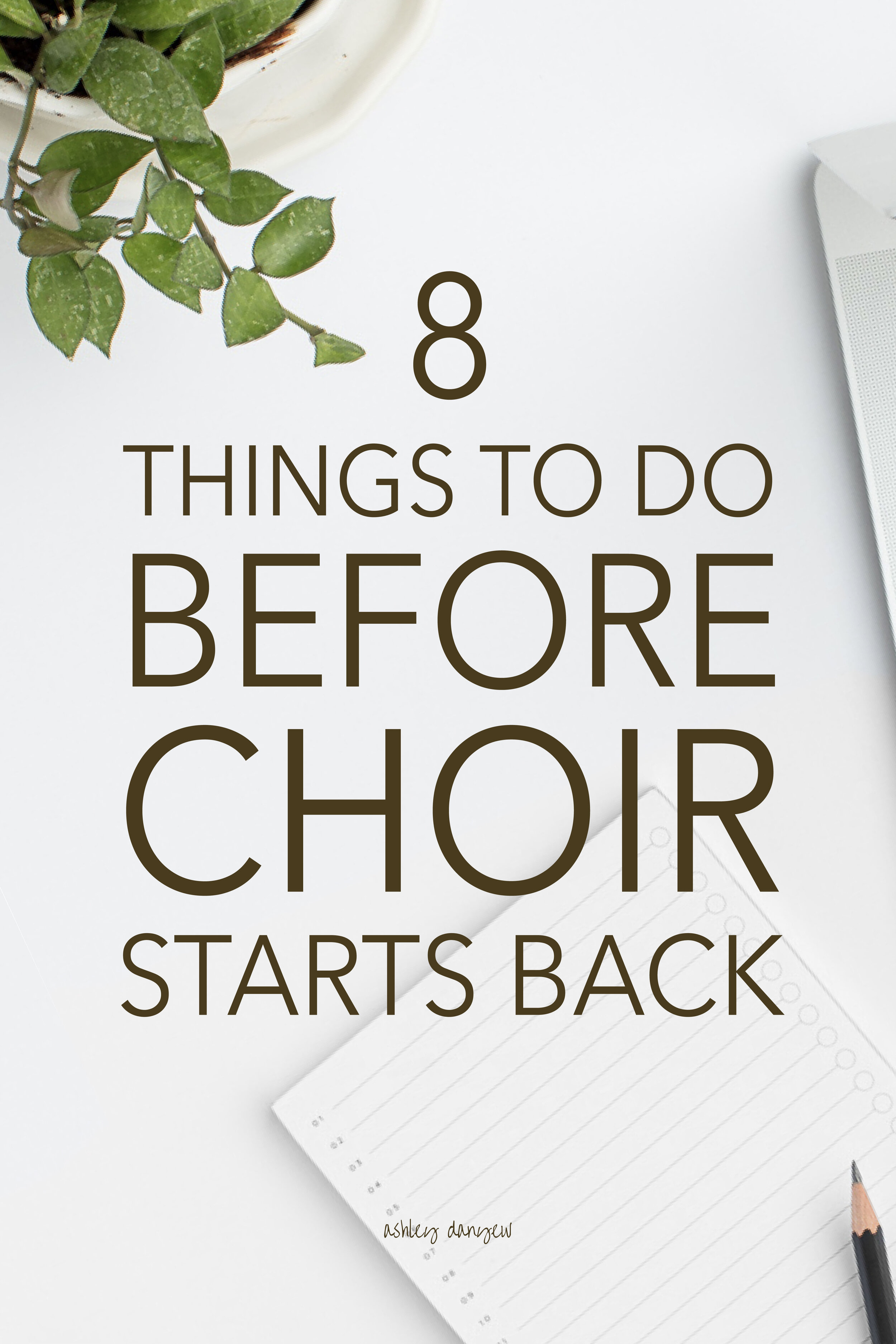Want to listen to this post instead?
Time.
It’s one of the biggest challenges we face as church musicians and music educators.
Here’s what some of you shared on my reader survey in response to the question, “What is your biggest work-related challenge?":
TIME!!! I am always scrambling to get things done.
I find it challenging to fit in all I want (or need) to do. (My inspiration is often greater than my time allotment!)
Limited time (30 min./week).
Lack of enough rehearsal time and space.
I teach Preschool through 8th grade music. It is challenging to find time to put together great lessons for that huge age span.
Trying to make my staff/session understand that SO much of what I do is "invisible hours”; that I spend hours upon hours studying scores, researching liturgy, finding new ways to help all my choirs, etc. So many of them think that the bulk of my time is in front of a choir or congregation, when in actuality there is so much that goes into preparing for those few hours in front of people.
Can you relate?
For many of you, rehearsal time is a prized commodity, as you likely see your group only once a week (not counting Sundays) for anywhere from 30-90 minutes (depending on the age of your singers 😉). Time is a constant struggle and there never seems to be enough of it to do everything we’d like to accomplish.
Adding in another rehearsal each week or extending the rehearsal you have is likely not an option, though you might consider extending your rehearsal time by 15 minutes during busy seasons leading up to Christmas or Easter or a special program you have planned (be sure to communicate this to your choir members in advance, if you do). For the rest of the year, you’ve got to make the most of the time you’re given.
You’ve got to make every minute of rehearsal count.
Looking for ideas and a few helpful strategies? Here are a few things you can do to make the most of the time you have in your weekly choir rehearsals:
7 Strategies to Help You Make the Most of Your Weekly Choir Rehearsal
No. 1 - Establish a routine
Create a rehearsal routine including things like warm-ups, Sunday’s anthem and other music, other music in the folder, announcements, prayer, etc. Outline a structure for your rehearsal that stays the same from week to week (for the most part). This will help establish your expectations for rehearsal time and help everyone prepare to do their best work.
It may be tempting to skip some parts of your normal routine when you feel crunched for time (especially in those busy seasons), but it’s important to establish a routine and stick to it. Oftentimes, the things that get cut to help save time are things that help the choir sing better, focus, and develop their musicianship. (source)
Related post: How to Plan a Productive Choir Rehearsal
Instead, find ways to be more efficient with your time. Consider sending home practice assignments - recordings of each part or a recording of the whole piece for members to listen to. Extend your rehearsals by 15 minutes for a month, as I mentioned before, and think about planning a dress rehearsal the day before a big program or service.
No. 2 - Write out a rehearsal order
Write out a list of anthems and music you’re planning to rehearse on a whiteboard (if you have one) that everyone can see when they come into the room. If you don’t have a whiteboard, or if you rehearse in the sanctuary, type up a list of music in advance on a half-sheet of paper, and set them out on a music stand for people to pick up when they arrive.
Encourage your choir members to put their music in order and make sure they have a copy of everything before rehearsal starts. That way, you won’t lose time in the middle of rehearsal waiting for everyone to get their music out or passing out extra copies.
Related post: 5 Things to Organize in a Church Music Program
No. 3 - Plan out rehearsal time in 5-minute increments
Write out a detailed rehearsal plan for yourself, organized in 5-minute increments to keep you on track.
Write down specific measure numbers where you want to start or review, particular sections of pieces that need work, and 2-3 specific goals you have for each anthem or section. This will save you time trying to remember where that section starts or where that problem phrase was or where you wanted to change the breathing.
Make a note of these things ahead of time so you can go right to them without wasting time (and losing everyone’s attention) with your head in the score.
No. 4 - Keep track of time as you go
Planning out your rehearsals in 5-minute increments doesn’t mean your rehearsal should be frantic or rushed. I think it’s best to communicate a sense of urgency in terms of doing focused work and working efficiently, but it’s okay to take a few minutes for a devotion or to answer people’s questions or respond to people’s requests to run through a section one more time, as long as you’re aware of the time and making adjustments as you go.
Keep a small digital clock where you can see it or keep your phone (in airplane mode) on the music stand so you can discretely keep track of the time throughout your rehearsal.
No. 5 - Spend rehearsal time working with the whole group, as much as possible
Be respectful of everyone’s time by avoiding working with just one or two sections for an extended period of time.
If you need to isolate a part here and there, that’s fine, but try to include the other sections as much as you can. Ask them to sing their part silently in their heads or hum it softly or sightread the part you’re working on, for added support. Ask them to listen for something in particular, then share what they heard.
If you find yourself in need of doing more focused part-work at some point, and if you have another capable leader, plan to do sectionals for part of a rehearsal (you’ll need another rehearsal space with a piano or keyboard and someone who is able to play parts and lead a sectional).
Related post: 5 Reasons Why Your Rehearsals Feel Monotonous (and How to Fix It!)
No. 6 - Incorporate flex time
Things are never going to go exactly as planned, no matter how well you’ve planned things out in advance. Prepare for this by having something you can skip or leave out if there’s not enough time to cover it (a “sacrificial section” as Victoria Hopkins calls it) and something you can add in at the last minute if you find yourself with an extra 5 minutes one week (unlikely, but you never know!).
No. 7 - Plan your next rehearsal while things are fresh in your mind
It’s easy to put this off and wait to plan rehearsal until the day of, but the benefits of planning your next rehearsal while things are fresh in your mind will actually save you time and help create a more cohesive experience for your choir members.
Related resource: Adult Choir Rehearsal Plan Template (free!)
Looking for more ways to make the most of your weekly rehearsal?
Join me this week for a free 5-day workshop! Music Education Basics is for music educators, designed to give you clarity in your teaching and a fresh dose of inspiration and practical teaching ideas you can use right away.
Sign up today and get the workshop materials sent straight to your inbox!
How do you make the most of your weekly rehearsal? What are your best strategies?
More helpful articles:
6 Tips for Having Effective Choir Practices
Maximizing Rehearsal Efficiency: Getting by with Less Rehearsal Time
10 Secrets for Running a Successful Choir Rehearsal
5 Super-Quick Rehearsal Planning Tips for the Disorganised







































